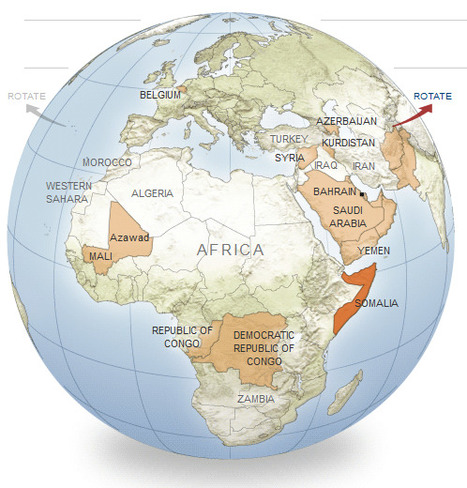I will once again preach to the choir, but with the hope that this will arm you with resources to use in discussions with administrators and colleagues in the fight against geographic ignorance. This article by Walter McDougall (2003 by Orbis) is worth reviewing and is a good reading assignment to start the school year. The link is to a PDF version of the article.
Via Scarpaci Human Geography



 Your new post is loading...
Your new post is loading...











